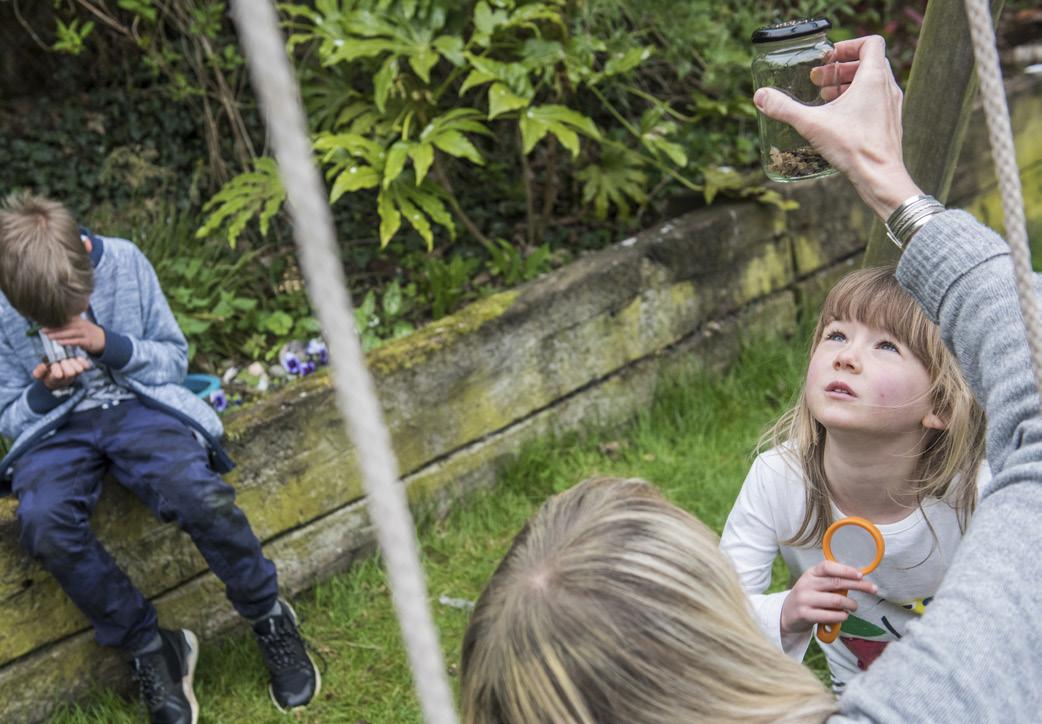
3 minute read
Five eco lessons I’ve learnt from lockdown
Anna Turns, environment journalist @AnnaTurns
While the collective trauma of this global pandemic is distressing, the enforced pause on ‘normal’ life has given nature a chance to recover with cleaner air, louder dawn choruses, quieter oceans and fewer contrails cross the blue skies.
As a biologist, I believe we’re living through a once-in-a-lifetime opportunity to create a greener future. Lockdown has sharpened my focus and instead of reverting to life pre-coronavirus, I hope for a massive step-change in behaviour and attitude. Politicians and business leaders take note – the transition to net zero carbon emissions is absolutely possible if we act now. While mitigating climate change won’t involve extreme social distancing and self-isolation, there are valuable environmental lessons to be learnt from this experience.
Imagine an empty jam jar. If you fill it with sand first, it’s really difficult to then fit in the bigger pebbles and rocks on top. But if you put the rocks and pebbles that represent the more important environmental priorities in first, the smaller grains of sand will fit in the spaces around them. In order to adapt, we need a rethink.
For the first time, I’m seriously tempted to ditch my car altogether instead of switching to an electric car in the future. Reducing the total miles driven and number of cars on the road is as crucial as electrification of our transport system. Without a car, I’d save money, probably stay fitter – walking, cycling and running more over recent weeks has felt quite liberating – and travel plans would be much more consciously thought out.

I’ve never been a shopping addict, but I have bought significantly less ‘stuff’ during lockdown and made more of an effort to fix things. My children have been perfectly happy wearing a few favourite outfits and playing in the garden – they just don’t need wardrobes full of clothes or overflowing boxes full of toys. Every single item we purchase has a carbon footprint and a cost to the environment, from its manufacture to its transport, packaging and disposal.
The same goes for food. Every year, UK households waste a shocking 4.5 million tonnes of food that could otherwise have been eaten, according to WRAP (the Waste and Resources Action Programme), and the Turns household is no exception. But eating every single meal at home has highlighted the sheer scale of our domestic food waste and now we’re planning meals more carefully, freezing leftovers and getting creative with resources in the larder. We’ve also made a compost heap as a last resort for food scraps and the kids have developed a ceaseless fascination with the slow worms living in it.
I certainly don’t miss shopping in supermarkets. Unable to get delivery slots from the ‘big four’, we’ve discovered alternatives. Supporting sustainable fisheries, traditional artisan production and regenerative farming is a chance to boost rural economies and enhance biodiversity. Buying direct from farmers, fishermen, butchers and independent producers that have rapidly shifted to offer home delivery helps to reinforce shorter supply chains that could be more resilient in the longterm.
Looking ahead, the imminent global recession is an opportunity to kickstart a new and more ethical financial system. If airlines get bailed out by the government, surely that has to come with green caveats and carbon taxes, for example. Any investment must be environmentallyminded to springboard us into a future that prioritises green tech, clean energy and agroecology.
Right now, we can press the reset button and decide how best to refill our empty jam jars. There’s no need to fear a new ‘normal’ – there’s a positive way out of this; we just need to put the biggest pebbles back in the jar first. Wild about learning Anna Turns explores how an alternative approach to lockdown learning can help reconnect children to nature and provide the basis for a lifelong understanding of the environment. Read at bitly.ws/8yIB. A jar half full? Reasons for optimism post-corona.



